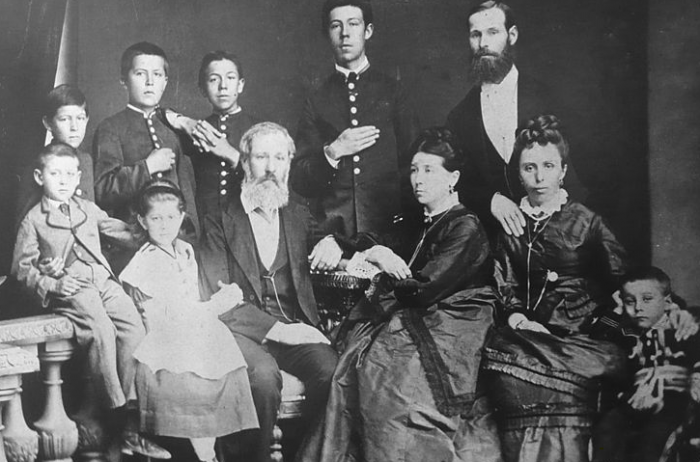I scroll through YouTube a lot on my phone.
This morning, I was looking for something to listen to on my journey to East London. I chose something the algorithm already picked for me: a piece about being in selective company. The parts about not letting other people drag you down—those typified as depressed or anxious—didn’t interest me so much; what piqued my attention was about halfway through the video when the speaker mentioned Anton Chekhov.
I know very little about Chekhov. I’ve read some of his plays, and one of the most profound experiences of my life was watching The Seagull at the National Theatre in London. I didn’t know that Chekhov came from humble and difficult beginnings, or that his father regularly beat him. I didn’t know that he endured this abuse, endured growing up in a poor neighbourhood, worked hard at school, and used his intelligence to get into medical school. Not only this, but he supported his family financially, too, some through his publications.
Now, I don’t know why exactly Chekhov flourished in such difficult circumstances. You could say that he didn’t—he experienced several bouts of illness and died at 44; however, what struck me was the way in which this video conveyed his decisiveness. In a few words, he made a decision—this abuse ends with me. He understood that his parents, too, had unhappy upbringings, and he drew the line with his own self, choosing not to blame them or drag their names through the mud. In fact, his artistic creations, which beg more questions than they answer, involve figures who display the hypocrisy of his father, for instance, without resorting to slander.
Without being explicit, art can be a container for inherited suffering, a way in which atrocities can end within a family, and new, greater life can be achieved with the self-awareness offered by a creative process. Speaking from personal experience, it is in this practice of processing emotions that letting go becomes possible, not through denial but rather through honouring and accepting whatever arises.
Working creatively as a process, rather than thinking too much about the end result, has the potential to liberate stagnant emotion. For me, scribbling with coloured pencils enables the release of anger and aggression. It alchemises this potent energy into decisiveness and drive, fuelled by the same conviction that my own inherited trauma—the patterns of relating in my family of origin—ends with me.
There is great self-awareness required to end the cycles of abuse from parent to child. This involves letting go of “normal”—because attached to this is often the normalisation of destructive and abusive behaviours—and putting different habits into practice. Something else I have learned is to ask myself what I need and what my limits are at any given time.
It would be beautiful to imagine that we could heal entirely—that “this ends with me” means any future generations are unscathed—but we live in a world that can confront everyone inside it with harsh realities daily. While I desire all my wounds to be stitched and repaired fully, I acknowledge the fallibility of my own human-ness. Not only do wounds leave scars, but some traumas, once alchemised, will not necessarily shield you from further hurt. When I say “this ends with me” it means I give myself over to this creative endeavour—to healing this developmental trauma—with total commitment and faith, and to the best of my capacity.
If anything, making the decision to end cycles of abuse in your family is a heroic act. It is fuelled by a commitment to your own self-development. Often, it isn’t even a choice. Heaving around a sack of pain in an awakened state just isn’t comfortable. When I think back several years, I can’t pinpoint a moment where I made the decision to draw the line. It was cultivated over time, and to tell you the truth, I didn’t have a choice. I needed to make careful moves to ensure my safety, and every decision was geared toward ending this cycle. I understand it more clearly from where I’m sitting now—in this long, beautiful, chaotic present.
In a play such as those written by Chekhov, a story has a beginning, middle, and end. Often an ending is accompanied by a death, or perhaps a marriage. Endings in life happen all the time, not only when someone passes. Certain stories or narratives can also end when you understand them better. It doesn’t mean that you dismiss them, but, that in a strange way, the narratives give way to a truth beyond what is commonly understood as a “story.”
Chekhov never had children. Perhaps this was another form of his saying that the abuse ends with him. I have experienced firsthand my mother’s lack of understanding of her own trauma responses as she brought me and my three sisters up in a big city. I have read around the subject, and I know that PTSD is common as survivors of childhood abuse become parents. It is also commonly misunderstood by the one experiencing it without proper care, education, and resources. Thus continues the cycle.
Not having children can be a way of not passing on trauma. This is a decision I am sure many people make consciously, and it is no doubt entwined with the environmental impact of having children in this day and age. Consequently, having children can mask itself as a fresh start, or a new beginning. My father wanted to “do it right this time” and so had two further children, to wipe the slate clean from the first four. This impulse is clearly problematic and confusing for the new life being born. A new baby isn’t a chance to start afresh, but a wholehearted commitment to a human life.
I would love to be a biological mother. In many ways, I find myself healing for this purpose. But then I often stop and remind myself that art, too, is a way of birthing new life, and to have access to this kind of generative activity is a privilege. In many ways, creative activity satisfies the human impulse to make your mark upon this Earth. Certainly, Chekhov achieved this. His name is famous not only in Russia, but globally, and has endured for over 100 years.
Art takes what is inside of you and transmutes it into a different form. The thing is, if you don’t like the work you made, you can discard it—end it, let it die so that something new can come in. This is not an ethical issue, although it can be deeply personal. The same cannot be said for a human life. The truth remains that bringing life into this world to satisfy a need for a fresh start is foolish and misinformed. Instead, we can create our own new beginnings through art, so that where abuse ends, beauty and joy begins.
I believe in the importance of ending unconscious perpetuations of abuse within families of origin, and in the sharing of resources available to do so, so that the burden is not only on the individual. For abuse cannot be localised within a family unit—it involves the community and the wider world. Abuse is socially and politically entwined. In this spirit, may we endeavour to lessen the burden of healing on each individual in this culture, and instead, recognise that healing is a collective endeavour, and for many, an issue of social justice. For where I end, you begin. Every relationship, just like every work of art, is a new beginning, for better or worse.
May we have the wisdom to enter into new beginnings that arise from compassionate endings. And may we understand the role of endings, and in doing so, give way to more beautiful, humane beginnings.
I feel a New Earth coming, don’t you?
~









Read 0 comments and reply